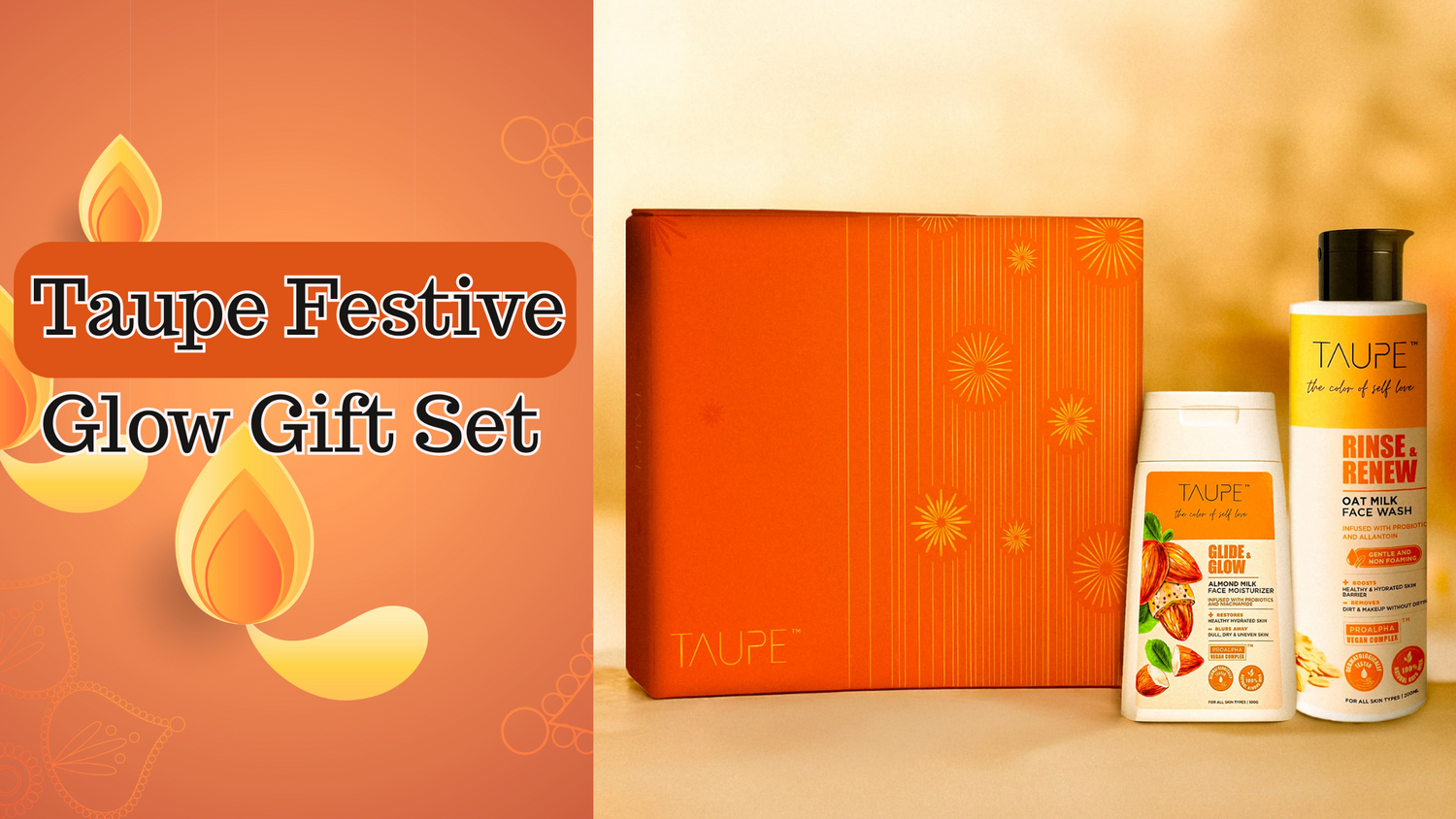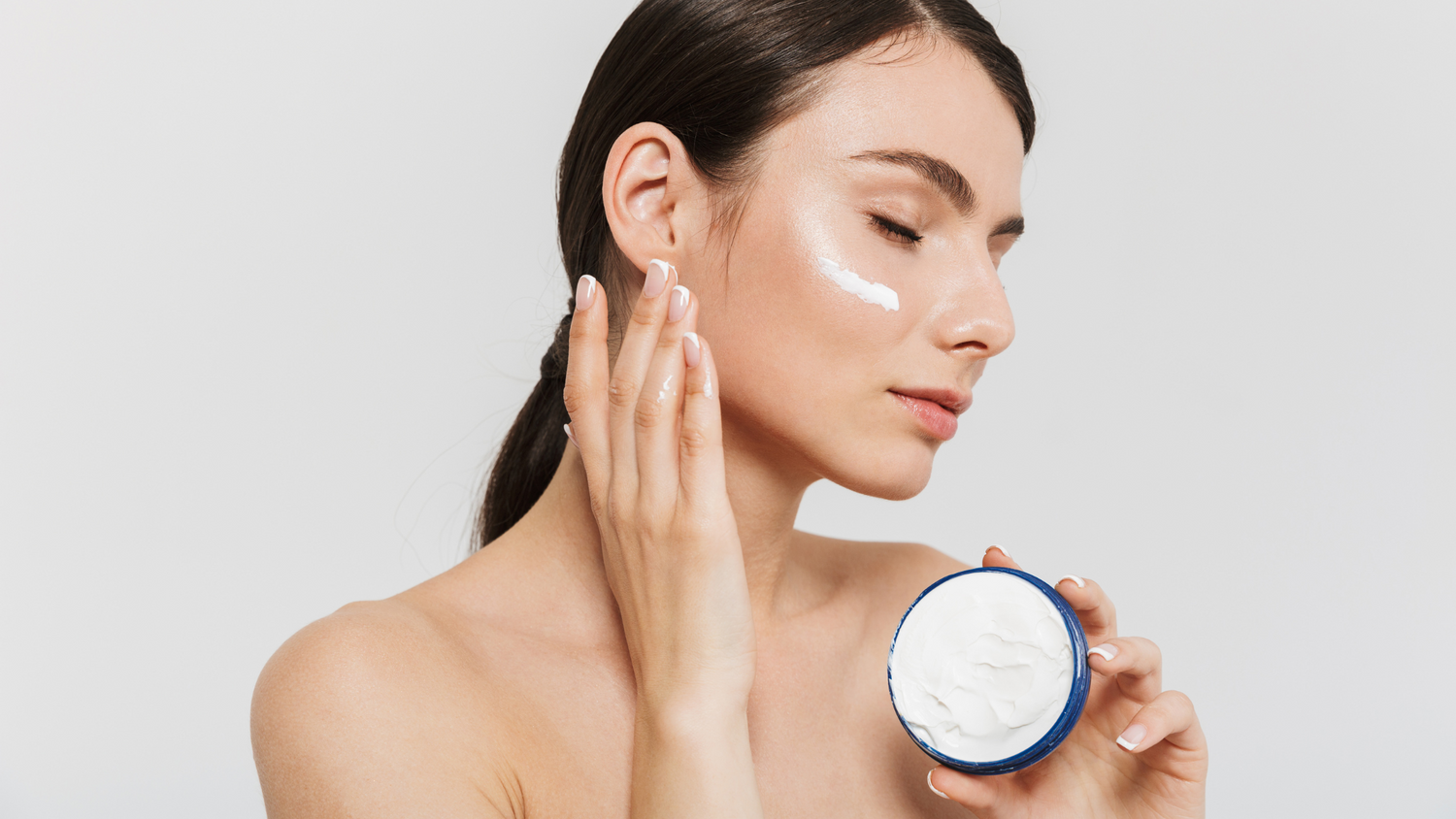Sunscreen is one of the most essential components of a skincare routine. For decades, it has been recognized for its ability to protect the skin from harmful ultraviolet (UV) radiation, a major contributor to premature aging, sunburns, and skin cancer. However, sunscreen's role goes beyond just blocking UV rays. With the growing interest in skin microbiome health, the understanding of how sunscreen interacts with the skin's natural barrier is expanding
Sunscreen: More Than Just UV Protection
The primary purpose of sunscreen is to block the harmful UV rays of the sun, which can cause both short-term damage like sunburns and long-term effects such as premature aging and skin cancer. There are two types of UV radiation: UVA and UVB.
-
UVA rays penetrate deeper into the skin, causing premature aging, wrinkles, and contributing to skin cancer.
-
UVB rays are responsible for sunburns and also play a significant role in the development of skin cancer.
Sunscreens are categorized into two types: physical (mineral) sunscreens and chemical (organic) sunscreens. Physical sunscreens contain ingredients like zinc oxide and titanium dioxide, which reflect UV rays away from the skin. Chemical sunscreens, on the other hand, absorb UV rays and transform them into heat before they can damage the skin.
However, the protective benefits of sunscreen extend far beyond just blocking UV rays. Sunscreen plays a critical role in preserving the skin's natural defenses, including its barrier and microbiome. Let’s explore this deeper.
The Skin Barrier: Your First Line of Defense
The skin barrier, or stratum corneum, is the outermost layer of skin that serves as the body’s primary defense against environmental stressors like pollutants, allergens, and harmful microbes. It also prevents water loss, keeping the skin hydrated and healthy. A compromised skin barrier can lead to a variety of skin issues, including dryness, irritation, acne, and increased sensitivity.
When exposed to UV radiation, the skin barrier is weakened, making the skin more vulnerable to external aggressors. UV damage can disrupt the lipid matrix in the skin, causing dehydration and a breakdown in the skin’s natural defense system. This is where sunscreen comes in – it protects not only against the UV damage but also helps maintain the integrity of the skin’s barrier.
Probiotics and the Skin Microbiome
The skin is home to a complex ecosystem of microorganisms, collectively referred to as the skin microbiome. These beneficial bacteria, fungi, and viruses form a protective layer on the skin, helping to regulate its function and protect it from harmful pathogens. A balanced skin microbiome supports the skin's immune system, contributes to its hydration, and plays a key role in preventing skin conditions such as eczema, acne, and rosacea.
UV exposure can disrupt the skin’s microbiome, reducing the diversity of beneficial bacteria while allowing harmful microbes to thrive. This imbalance can further weaken the skin’s defenses, exacerbating skin conditions and slowing down the healing process. It’s crucial, then, to not only protect the skin from UV radiation but also ensure that we maintain the health of the skin microbiome.
How Sunscreen Supports the Skin’s Microbiome and Barrier Function
Sunscreen does more than just protect the skin from UV damage. It also plays a significant role in preserving the delicate balance of the skin microbiome and maintaining the integrity of the skin barrier. Let’s dive into the specific ways sunscreen supports skin health:
1. Preserving the Skin’s Lipid Barrier
Sunscreens, particularly those containing physical blockers like zinc oxide and titanium dioxide, act as a physical shield that prevents UV rays from penetrating the skin. This prevents UV radiation from breaking down the lipids in the skin barrier, thus maintaining the moisture balance and protecting the skin’s barrier function. A strong skin barrier ensures that the skin remains hydrated and prevents the entry of harmful bacteria or allergens that could disrupt the microbiome.
2. Reducing Inflammation and Irritation
UV radiation can trigger inflammation and oxidative stress in the skin, which can lead to the release of pro-inflammatory cytokines. This inflammation weakens the skin’s defenses and can disrupt the microbiome, leading to irritation, redness, and other skin conditions. Sunscreen helps to mitigate the inflammatory response by preventing UV-induced damage. By reducing inflammation, sunscreen indirectly helps to preserve the health of the skin microbiome.
3. Maintaining Microbial Diversity
Research has shown that UV radiation can reduce the diversity of the skin’s microbiome, promoting the growth of harmful bacteria and fungi that could lead to skin conditions like acne, eczema, and rosacea. By using sunscreen, you protect your skin from the harmful effects of UV exposure, including microbiome disruption. This allows the beneficial microorganisms on your skin to thrive, promoting a healthy balance and improving skin health over time.
4. Supporting Probiotic Skin Care
Some modern sunscreens are now formulated with probiotics or prebiotics to support the skin microbiome directly. These probiotics help to replenish the beneficial bacteria on the skin that may be disrupted by UV exposure or other environmental stressors. By incorporating these probiotic ingredients into your sunscreen, you can enhance the skin’s natural defense system and further protect your skin’s barrier from damage.
Choosing Sunscreen for Skin Barrier Health
When selecting a sunscreen, it’s important to choose one that not only offers broad-spectrum protection but also supports the skin’s barrier and microbiome. Here are a few tips to consider when choosing the best sunscreen for your skin:
-
Look for Non-Comedogenic Options: Sunscreens that are non-comedogenic will not clog pores or exacerbate acne. This is especially important for individuals with sensitive or acne-prone skin.
-
Opt for Broad-Spectrum Protection: Choose a sunscreen that offers protection against both UVA and UVB rays. This will ensure comprehensive protection from the sun’s harmful radiation.
-
Consider Mineral Sunscreens with Zinc Oxide and Titanium Dioxide: These physical blockers sit on top of the skin, reflecting UV rays away from the skin, and they are less likely to disrupt the skin’s microbiome.
-
Choose Formulations with Added Hydration: Sunscreens that contain moisturizing ingredients like glycerin, ceramides, and hyaluronic acid can help maintain the skin’s moisture balance and prevent dehydration.
-
Look for Probiotic-Infused Options: Probiotic-infused sunscreens can help support the skin’s natural defenses by replenishing the beneficial bacteria that may be disrupted by UV exposure.
Incorporating Sunscreen into Your Skincare Routine
To maximize the benefits of sunscreen, it’s essential to use it as part of a comprehensive skincare routine. Here are some tips for incorporating sunscreen into your daily regimen:
-
Apply Sunscreen Every Morning: Make sunscreen a non-negotiable part of your morning routine. Even on cloudy days or when you’re indoors, UV rays can still affect your skin.
-
Reapply Every Two Hours: Sunscreen needs to be reapplied throughout the day, especially if you’re sweating or swimming.
-
Use the Right Amount: Most people don’t use enough sunscreen. Make sure to apply a generous amount to cover your entire face, neck, and any exposed skin.
-
Pair with Probiotic Skincare: To enhance the benefits for your skin’s microbiome, consider incorporating probiotic-infused skincare products alongside your sunscreen.
The Bottom Line: Sunscreen for Long-Term Skin Health
Sunscreen is no longer just a tool for preventing sunburn. Its role in preserving the skin’s microbiome, supporting the skin’s barrier, and reducing inflammation highlights its importance in maintaining overall skin health. By protecting your skin from UV damage, you’re not just preventing the visible signs of aging and sunburns—you’re also safeguarding the skin’s natural defenses, including its microbiome.
When choosing sunscreen, look for formulations that not only offer UV protection but also support skin health by promoting a healthy skin barrier and microbiome. By incorporating sunscreen into a holistic skincare routine, you can achieve healthy, radiant skin that stands the test of time.
At Taupe, we understand the importance of skin microbiome health and the role of sunscreen in protecting it. Explore our range of probiotic skincare products that help nourish and strengthen your skin's natural defenses while offering superior sun protection. Your skin deserves the best—protect it today for a healthier tomorrow.
Sunscreen: More Than Just UV Protection
The primary purpose of sunscreen is to block the harmful UV rays of the sun, which can cause both short-term damage like sunburns and long-term effects such as premature aging and skin cancer. There are two types of UV radiation: UVA and UVB.
-
UVA rays penetrate deeper into the skin, causing premature aging, wrinkles, and contributing to skin cancer.
-
UVB rays are responsible for sunburns and also play a significant role in the development of skin cancer.
Sunscreens are categorized into two types: physical (mineral) sunscreens and chemical (organic) sunscreens. Physical sunscreens contain ingredients like zinc oxide and titanium dioxide, which reflect UV rays away from the skin. Chemical sunscreens, on the other hand, absorb UV rays and transform them into heat before they can damage the skin.
However, the protective benefits of sunscreen extend far beyond just blocking UV rays. Sunscreen plays a critical role in preserving the skin's natural defenses, including its barrier and microbiome. Let’s explore this deeper.
The Skin Barrier: Your First Line of Defense
The skin barrier, or stratum corneum, is the outermost layer of skin that serves as the body’s primary defense against environmental stressors like pollutants, allergens, and harmful microbes. It also prevents water loss, keeping the skin hydrated and healthy. A compromised skin barrier can lead to a variety of skin issues, including dryness, irritation, acne, and increased sensitivity.
When exposed to UV radiation, the skin barrier is weakened, making the skin more vulnerable to external aggressors. UV damage can disrupt the lipid matrix in the skin, causing dehydration and a breakdown in the skin’s natural defense system. This is where sunscreen comes in – it protects not only against the UV damage but also helps maintain the integrity of the skin’s barrier.
Probiotics and the Skin Microbiome
The skin is home to a complex ecosystem of microorganisms, collectively referred to as the skin microbiome. These beneficial bacteria, fungi, and viruses form a protective layer on the skin, helping to regulate its function and protect it from harmful pathogens. A balanced skin microbiome supports the skin's immune system, contributes to its hydration, and plays a key role in preventing skin conditions such as eczema, acne, and rosacea.
UV exposure can disrupt the skin’s microbiome, reducing the diversity of beneficial bacteria while allowing harmful microbes to thrive. This imbalance can further weaken the skin’s defenses, exacerbating skin conditions and slowing down the healing process. It’s crucial, then, to not only protect the skin from UV radiation but also ensure that we maintain the health of the skin microbiome.
How Sunscreen Supports the Skin’s Microbiome and Barrier Function
Sunscreen does more than just protect the skin from UV damage. It also plays a significant role in preserving the delicate balance of the skin microbiome and maintaining the integrity of the skin barrier. Let’s dive into the specific ways sunscreen supports skin health:
1. Preserving the Skin’s Lipid Barrier
Sunscreens, particularly those containing physical blockers like zinc oxide and titanium dioxide, act as a physical shield that prevents UV rays from penetrating the skin. This prevents UV radiation from breaking down the lipids in the skin barrier, thus maintaining the moisture balance and protecting the skin’s barrier function. A strong skin barrier ensures that the skin remains hydrated and prevents the entry of harmful bacteria or allergens that could disrupt the microbiome.
2. Reducing Inflammation and Irritation
UV radiation can trigger inflammation and oxidative stress in the skin, which can lead to the release of pro-inflammatory cytokines. This inflammation weakens the skin’s defenses and can disrupt the microbiome, leading to irritation, redness, and other skin conditions. Sunscreen helps to mitigate the inflammatory response by preventing UV-induced damage. By reducing inflammation, sunscreen indirectly helps to preserve the health of the skin microbiome.
3. Maintaining Microbial Diversity
Research has shown that UV radiation can reduce the diversity of the skin’s microbiome, promoting the growth of harmful bacteria and fungi that could lead to skin conditions like acne, eczema, and rosacea. By using sunscreen, you protect your skin from the harmful effects of UV exposure, including microbiome disruption. This allows the beneficial microorganisms on your skin to thrive, promoting a healthy balance and improving skin health over time.
4. Supporting Probiotic Skin Care
Some modern sunscreens are now formulated with probiotics or prebiotics to support the skin microbiome directly. These probiotics help to replenish the beneficial bacteria on the skin that may be disrupted by UV exposure or other environmental stressors. By incorporating these probiotic ingredients into your sunscreen, you can enhance the skin’s natural defense system and further protect your skin’s barrier from damage.
Choosing Sunscreen for Skin Barrier Health
When selecting a sunscreen, it’s important to choose one that not only offers broad-spectrum protection but also supports the skin’s barrier and microbiome. Here are a few tips to consider when choosing the best sunscreen for your skin:
-
Look for Non-Comedogenic Options: Sunscreens that are non-comedogenic will not clog pores or exacerbate acne. This is especially important for individuals with sensitive or acne-prone skin.
-
Opt for Broad-Spectrum Protection: Choose a sunscreen that offers protection against both UVA and UVB rays. This will ensure comprehensive protection from the sun’s harmful radiation.
-
Consider Mineral Sunscreens with Zinc Oxide and Titanium Dioxide: These physical blockers sit on top of the skin, reflecting UV rays away from the skin, and they are less likely to disrupt the skin’s microbiome.
-
Choose Formulations with Added Hydration: Sunscreens that contain moisturizing ingredients like glycerin, ceramides, and hyaluronic acid can help maintain the skin’s moisture balance and prevent dehydration.
-
Look for Probiotic-Infused Options: Probiotic-infused sunscreens can help support the skin’s natural defenses by replenishing the beneficial bacteria that may be disrupted by UV exposure.
Incorporating Sunscreen into Your Skincare Routine
To maximize the benefits of sunscreen, it’s essential to use it as part of a comprehensive skincare routine. Here are some tips for incorporating sunscreen into your daily regimen:
-
Apply Sunscreen Every Morning: Make sunscreen a non-negotiable part of your morning routine. Even on cloudy days or when you’re indoors, UV rays can still affect your skin.
-
Reapply Every Two Hours: Sunscreen needs to be reapplied throughout the day, especially if you’re sweating or swimming.
-
Use the Right Amount: Most people don’t use enough sunscreen. Make sure to apply a generous amount to cover your entire face, neck, and any exposed skin.
-
Pair with Probiotic Skincare: To enhance the benefits for your skin’s microbiome, consider incorporating probiotic-infused skincare products alongside your sunscreen.
The Bottom Line: Sunscreen for Long-Term Skin Health
Sunscreen is no longer just a tool for preventing sunburn. Its role in preserving the skin’s microbiome, supporting the skin’s barrier, and reducing inflammation highlights its importance in maintaining overall skin health. By protecting your skin from UV damage, you’re not just preventing the visible signs of aging and sunburns—you’re also safeguarding the skin’s natural defenses, including its microbiome.
When choosing sunscreen, look for formulations that not only offer UV protection but also support skin health by promoting a healthy skin barrier and microbiome. By incorporating sunscreen into a holistic skincare routine, you can achieve healthy, radiant skin that stands the test of time.
At Taupe, we understand the importance of skin microbiome health and the role of sunscreen in protecting it. Explore our range of probiotic skincare products that help nourish and strengthen your skin's natural defenses while offering superior sun protection. Your skin deserves the best—protect it today for a healthier tomorrow.




